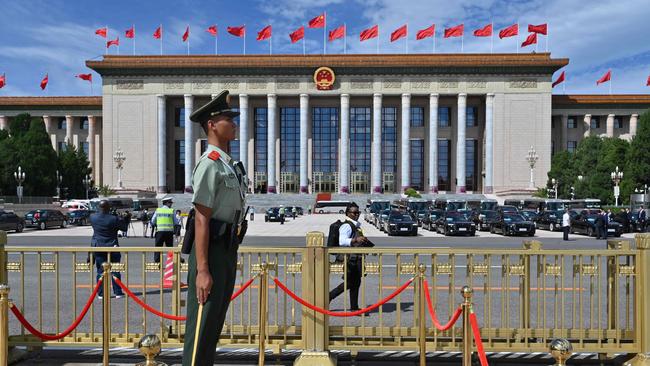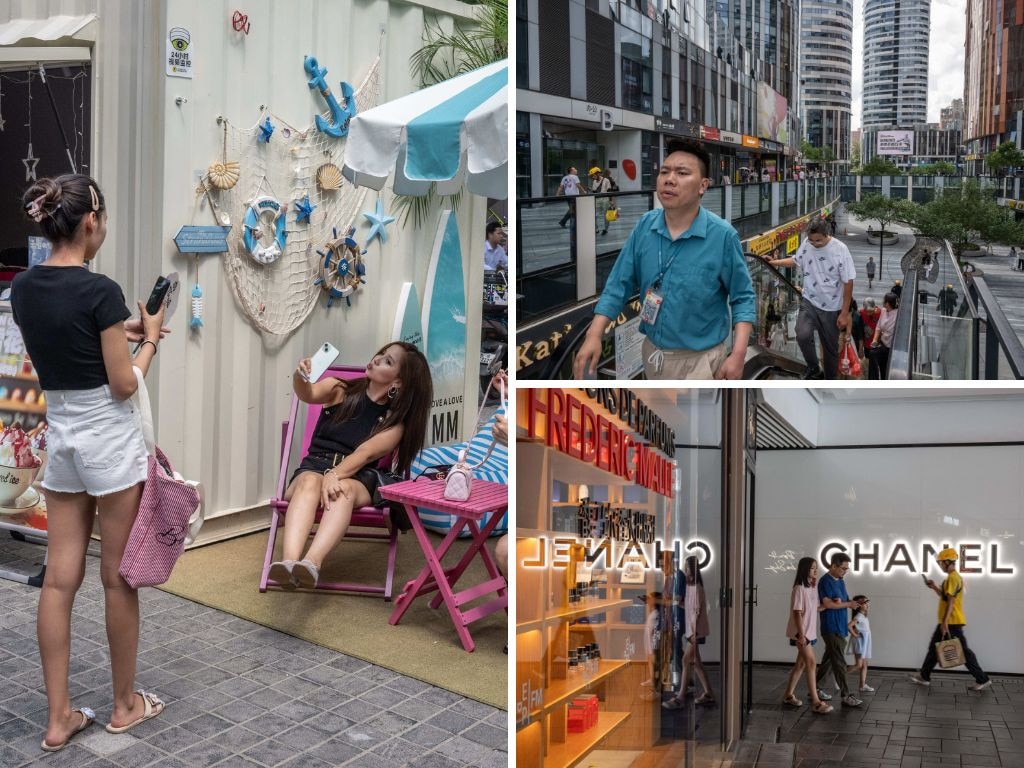Chinese Communist Party propaganda boss on a secret mission to Australia
The Australian can reveal a top official from the Chinese Communist Party’s central propaganda department has held high-level meetings in Australia.

A top official from the Chinese Communist Party’s central propaganda department has made a discreet trip to Australia that reveals both Beijing’s improved diplomatic ties with Canberra but also the extreme sensitivity surrounding the “stabilised” relationship.
The Australian can reveal Mo Gaoyi, the deputy director of the Communist Party’s publicity department, is currently in Australia and on Wednesday met in Canberra with Assistant Minister for Foreign Relations Tim Watts.
Sources familiar with the itinerary of Mr Mo, who also oversees Beijing’s State Council Information Office, said he had since travelled to Sydney where he was due to have private meetings with Chinese journalists and a select group of Australian academics.
The Chinese embassy in Canberra declined to comment on the extremely rare trip, the first by a Deputy Director of the Communist Party’s Central Committee publicity department since 2014.
Sources familiar with his meeting with Mr Watts told The Australian it covered areas of co-operation in the bilateral relationship, such as trade, and arts and cultural exchanges, along with more prickly subjects, including consular matters, cyber attacks, foreign interference and access for Australian journalists to China.
Mr Mo’s visit to Canberra and Sydney – which was at the request of Beijing and has been overseen by the Chinese embassy – is a further sign of the improvement in diplomatic relations between Canberra and Beijing. However, the extreme secrecy around the trip again reveals the sensitive nature of Australia’s relationship with China despite a two-year “stabilisation” process.
On Thursday, Foreign Minister Penny Wong spoke frankly to an audience of China-focused Australian business people about the difficulties that remain.
“Geopolitics is ever more entwined with economics, and this will only get harder,” Senator Wong told the Australia China Business Council’s annual networking day in Parliament House.
While noting the successes of the government’s efforts to re-engage in dialogue with Beijing, she said Australia could not just “imagine challenges away”.
She also confirmed the upcoming parliamentary delegation to China, revealed on Wednesday by The Australian, calling it part of broader efforts to make sure the Chinese government better understood Australia’s views.
“These are all ways we understand each other and we also understand the parameters of the differences (in the relationship),” she told The Australian.
In a separate address, Trade Minister Don Farrell celebrated the improvement in trade ties with China, while cautioning the Australian China-focused business community to beware of “putting all your eggs into one basket”.
Both the government and Coalition used Thursday’s Australia China Business Council networking day to brandish their credentials for managing the complicated relationship with Australia’s biggest trade partner.
Peter Dutton struck a positive tone in his address, praising the contributions of Chinese Australians and speaking ambitiously about the future of trade ties.
“We do want to see trade increase dramatically,” the Opposition Leader said, before being surrounded after his address for selfies with audience members.

Mr Dutton has said winning back marginal seats with big Chinese heritage communities is a key priority for the Coalition at the upcoming federal election.
Earlier, opposition foreign affairs spokesman Simon Birmingham spoke about many of the challenges that remain in the relationship and defended Australia’s response to China’s “coercive trade sanctions”.
“We were not bowed and we should be proud of that,” he said.
The deputy ambassador at the Chinese embassy in Australia, Li Fanjie, said the relationship had “embarked on a new turning point” after tone-setting meetings between President Xi Jinping and Anthony Albanese.
Mr Li said two-way trade between the two countries – which set a record in 2023 at more than $300bn – was the “ballast” in the relationship and “new opportunities” were becoming available to Australian businesses.
The Australian this week revealed Australia’s apple farmers are expected to get market access to China in November.






To join the conversation, please log in. Don't have an account? Register
Join the conversation, you are commenting as Logout